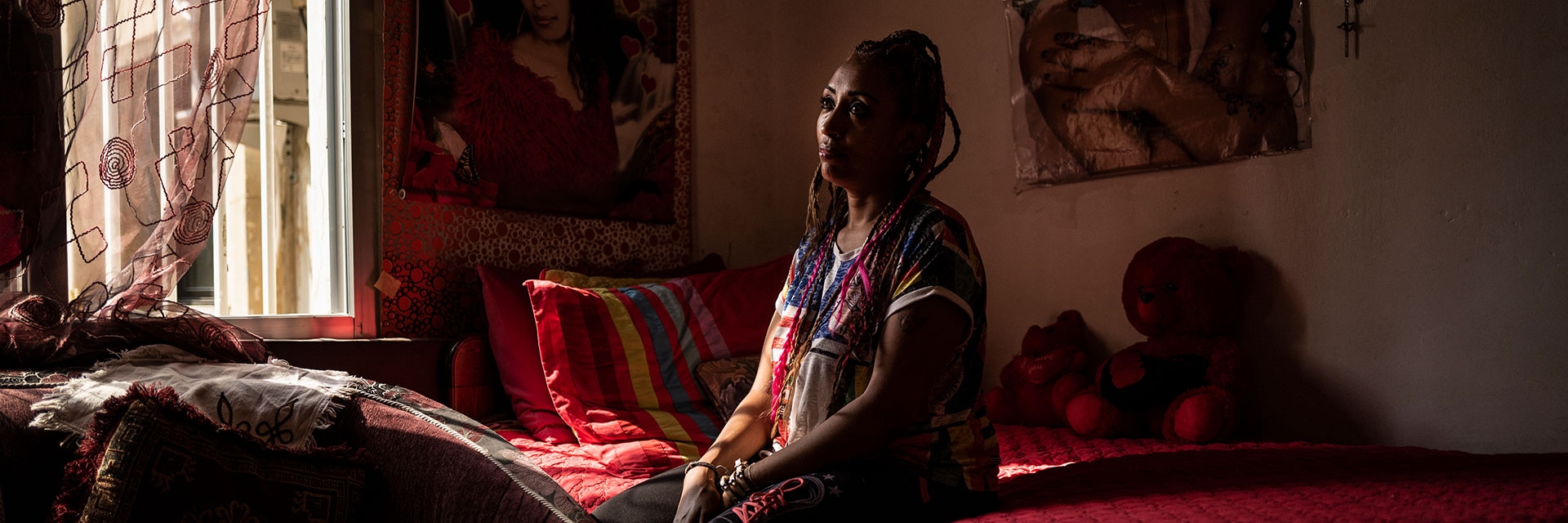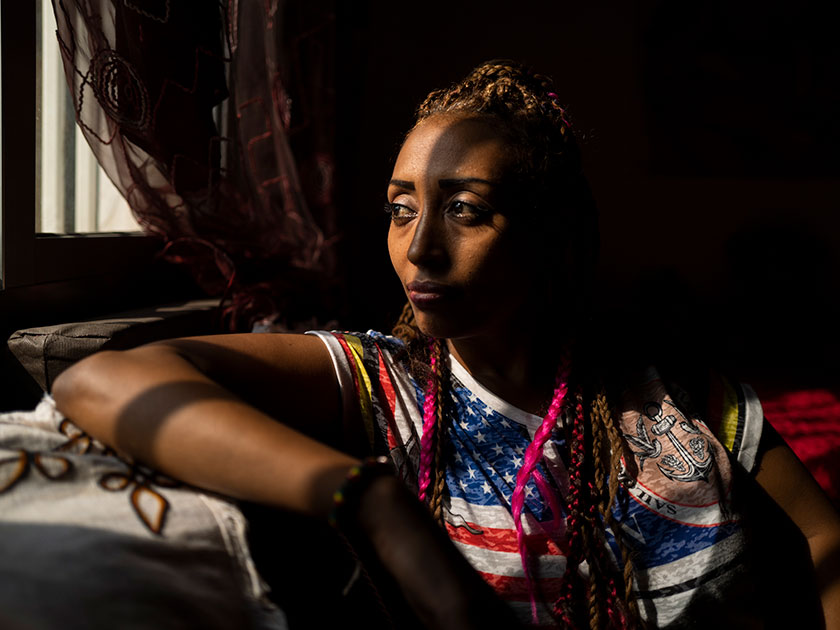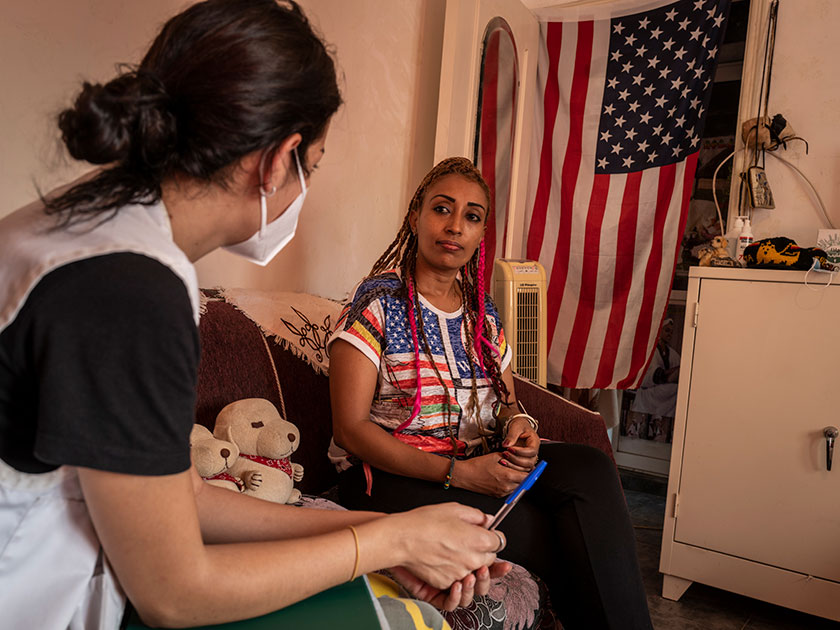
Some injuries take longer to heal
On August 4th, C finished her shift at the hotel and walked home. She lived in a small studio apartment in the Karentina-Mdawar area in Beirut, Lebanon.
She had barely walked through the front door when it happened. Her apartment was less than one kilometer away from centre of the blast that blew across the city.
She dropped her bag and covered her head with her arms. Her instincts may have saved her life.
“Everything exploded – the windows, the door,” says C.
“My neck and my harm were injured. I did not know where I was, I could not move.”
C is a 32-year-old migrant worker from Ethiopia. She moved to Lebanon when she was 18 years old. She worked as a housekeeper for 10 years before getting a job working in a hotel in Beirut.
Since the day of the explosion, the doors and windows of her brightly decorated apartment have been fixed. Construction work is still ongoing in the area and inside the building. The physical injuries on her neck and arms healed, but the painful memories remained.
“Sometimes when I’m alone I have flashbacks of the scenes that I saw when the blast happened,” says C.
She struggled with insomnia and anxiety. Images of the injured, covered in blood and running through clouds of dust came back to haunt her every time she closed her eyes.
C met with a Médecins du Monde (MdM) psychotherapist who helped her process her trauma, and now she is receiving ongoing support through a social worker.
“I’m much better now because of the support that I’m receiving from MdM,” says C. “I can sleep much better than before.”
C said that she needed someone to talk to, someone with whom she could share her pain. Her social worker continues to follow up with personal care supplies and emotional support.
“She is like a sister for me,” says C.
On the eve of the Beirut explosion, the people of Lebanon were facing hardship: an economic crisis, a refugee crisis and COVID-19. After the explosion, Lebanon had 300,000 displaced people, in need of shelter, food or medical attention for their injuries.
The explosion also triggered a mental health crisis as children and adults alike suffer from anxiety or PTSD. MdM has been providing mental health and psychosocial support to those suffering from anxiety, fear, hopelessness and sadness.
Many citizens of Beirut are trying to cope with the loss of friends or family, personal injuries and the reconstruction of their homes, all at the same time. Early intervention and follow up attention can prevent the development of serious, long term mental health disorders.
C is doing much better these days. She has been running errands and visiting neighbours. She has gone back to work and is slowly getting her life back together.
She says she continues to find strength reading her Bible, praying and being an active participant in her spiritual community group.
“I know a woman who is still in a coma because of the blast,” says C. “I pray for her every day.”
“I am a miracle survivor.”

